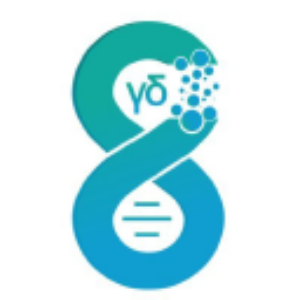IN8bio Provides Update from the Ongoing Phase 1 Clinical Trial of its Allogeneic Gamma-Delta T Cell Therapy in Leukemia Patients Undergoing Hematopoietic Stem Cell Transplant
Rhea-AI Summary
IN8bio has announced encouraging early results from its ongoing Phase 1 trial of INB-100, a gamma-delta T cell therapy for patients with acute myeloid leukemia (AML). Three patients have received treatment, all of whom remain in remission, with two achieving durable responses lasting over 1.5 years. The therapy demonstrated a manageable safety profile, with no significant adverse events reported. This trial aims to explore the efficacy of this novel treatment for patients undergoing haploidentical stem cell transplants, where relapse rates can be high.
Positive
- All three treated patients remain in remission; two for ~20 months and ~18 months, respectively.
- Durable responses (>1.5 years) observed in two patients.
- No treatment-related grade 3 or greater adverse events reported, indicating a good safety profile.
Negative
- None.
News Market Reaction 1 Alert
On the day this news was published, INAB declined 0.72%, reflecting a mild negative market reaction.
Data tracked by StockTitan Argus on the day of publication.
- The ongoing Phase 1 trial of INB-100 is the first and most clinically advanced program administering large systemic doses of allogeneic gamma-delta T cells to patients
- 3 patients have been treated to date, all of whom remain in remission with the first two patients at ~20 months and ~18 months post treatment, respectively, and the most recent at ~6 months
- Of the 3 patients that were dosed with INB-100, all have achieved and remain in remission to date, durable responses of >1.5 years were observed in two patients
- INB-100 continues to demonstrate a manageable safety profile to-date, with no dose-limiting toxicities, no treatment-related grade 3 or greater adverse events, and no cytokine release syndrome (CRS) or immune effector cell-associated neurotoxicity syndrome (ICANS)
NEW YORK, Dec. 16, 2021 (GLOBE NEWSWIRE) -- IN8bio, Inc. (Nasdaq: INAB), a clinical-stage biopharmaceutical company focused on the discovery and development of innovative gamma-delta T cell therapies utilizing its DeltEx platform, today provided an update from the ongoing Phase 1 clinical trial of INB-100, a donor-derived gamma-delta T cell therapeutic in development for patients with leukemia undergoing haploidentical hematopoietic stem cell transplant (HSCT). The three patients with relapsed acute myeloid leukemia (AML) treated to date demonstrate that allogeneic gamma-delta T cell therapy has a manageable toxicity profile with the potential for durable responses in high-risk patients. Haploidentical HSCT patients have high relapse rates of up to
“We believe that the encouraging early data from the first patients dosed in this clinical trial suggest the potential of gamma-delta T cells to offer a novel treatment option for patients with aggressive hematologic malignancies,” said Trishna Goswami, M.D., Chief Medical Officer at IN8bio. “Multiple complete responses with durability greater than 1.5 years is especially promising for patients with high-risk leukemias, who have high rates of post-HSCT relapse. The absence of grade 3 or greater graft versus host disease (GvHD) 100 days post gamma-delta T cell infusion is also encouraging for an allogeneic therapy. We continue to enroll patients in this Phase 1 clinical trial and look forward to reporting additional data from this program in 2022.”
This Phase 1 clinical trial (NCT03533816) is a dose-escalation trial of allogeneic, or donor-derived, gamma-delta T cells that have been expanded and activated ex vivo and administered systemically to patients with leukemia following haploidentical HSCT. Three high-risk AML patients with complex cytogenetics have been treated to-date, including patients with trisomy 8, del7 mutations. The single-institution clinical trial is currently being conducted at The University of Kansas Cancer Center (KUCC). The primary endpoints of this trial are safety and tolerability, and secondary endpoints include rates of GvHD, relapse rate and overall survival.
About IN8bio
IN8bio is a clinical-stage biopharmaceutical company focused on the discovery, development and commercialization of gamma-delta T cell product candidates for solid and liquid tumors. Gamma-delta T cells are a specialized population of T cells that possess unique properties, including the ability to differentiate between healthy and diseased tissue.
The proprietary IN8bio DeltEx platform is designed to overcome many of the challenges associated with the expansion, genetic engineering and scalable manufacturing of gamma-delta T cells. The DeltEx platform employs allogeneic, autologous and genetically modified approaches to develop cell therapies, designed to effectively identify and eradicate tumor cells. This approach allows us to expand the cells ex vivo to administer a potentially therapeutic dose to patients, harnessing the unique properties of gamma-delta T cells, including their ability to broadly recognize cellular stress signals on tumor cells. We have used the DeltEx platform to create our deep pipeline of innovative allogeneic, autologous and/or genetically modified product candidates designed to effectively target and potentially eradicate disease and improve patient outcomes.
IN8bio is currently conducting two investigator-initiated Phase 1 clinical trials for its lead gamma-delta T cell product candidates: INB-200 for the treatment of newly diagnosed glioblastoma and INB-100 for the treatment of patients with leukemia undergoing hematopoietic stem cell transplantation. IN8bio also has a broad portfolio of preclinical programs focused on addressing other solid tumor types.
For more information about IN8bio and its programs, please visit www.IN8bio.com.
Forward Looking Statements
Certain statements herein concerning the Company’s future expectations, plans and prospects, including without limitation, statements about the progress, timing, clinical development and scope of clinical trials and the reporting of clinical data for the Company’s product candidates; and the prospects for such candidates and underlying technology, constitute forward-looking statements under the Private Securities Litigation Reform Act of 1995. The use of words such as “may,” “might,” “will,” “should,” “expect,” “plan,” “anticipate,” “believe,” “estimate,” “project,” “intend,” “future,” “potential,” or “continue,” the negative of these and other similar expressions are intended to identify such forward looking statements. Such statements, based as they are on the current expectations of management, inherently involve numerous risks and uncertainties, known and unknown, many of which are beyond the Company’s control. Consequently, actual future results may differ materially from the anticipated results expressed in such statements. Specific risks which could cause actual results to differ materially from the Company’s current expectations include: scientific, regulatory and technical developments; failure to demonstrate safety, tolerability and efficacy; potential for interim, top-line and preliminary data to change as audit and verification procedures are completed; difficulties enrolling patients; expense and uncertainty of obtaining regulatory approval, including from the U.S. Food and Drug Administration; and the Company’s reliance on third parties, including licensors and clinical research organizations. Do not place undue reliance on any forward-looking statements included herein, which speak only as of the date hereof and which the Company is under no obligation to update or revise as a result of any event, circumstances or otherwise, unless required by applicable law.
Contacts
IN8bio, Inc.
Charles Butler
+1 646.600.6GDT (6438)
cbutler@IN8bio.com
Investors:
Solebury Trout
David Buck
+ 1 646.378.2927
dbuck@soleburytrout.com
Media:
Burns McClellan, Inc.
Robert Flamm, Ph.D.
+1 212.213.0006 - ext. 364
rflamm@burnsmc.com








